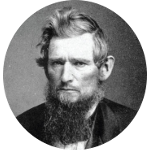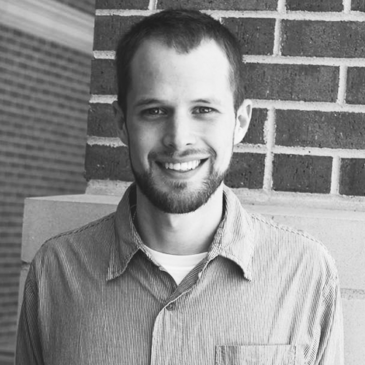Sam Magavern is senior policy fellow at Partnership for the Public Good, a community-based think tank that he co-founded in 2007 and co-directed until 2019. He teaches at University at Buffalo Law School and Cornell University’s ILR School, where he was the Visiting Activist Scholar in 2019-2020. Mr. Magavern serves as the attorney for the City of Buffalo Living Wage Commission and as a commissioner on the Niagara River Greenway Commission. His publications range from scholarly articles to comic books; they include a non-fiction book, “Primo Levi’s Universe,” and a book of poetry, “Noah’s Ark.” Mr. Magavern received his B.A. from Harvard University and his J.D. from UCLA Law.

Equitable Community ChangeCornell Certificate Program
Overview and Courses
In an "equitable community," everyone is included in the full benefits of society. Advancing equitable community change depends on understanding racial, social, spatial, economic, and environmental systems and their biases while, at the same time, developing innovative solutions to seemingly intractable social problems. This certificate program delves into the knowledge and skills needed for individuals like you, working in all sectors of society, to manage development and changes in ways that build more equitable, just, and sustainable communities.
Ultimately, you will discover the deep structural and cultural roots of today’s pressing social, economic, and environmental challenges then work to counteract them in the communities you serve. Throughout this six-course certificate, you will perform social action research and apply course concepts, data, and information to create policy initiatives and construct public narratives aimed at bringing diverse people and communities together for equitable change.
Course list
In this course, you will examine what equity means and how it manifests within a community. You will identify causes of and solutions to equity issues by looking at systemic forces, power differentials, and implicit biases. You will hear directly from activists working for equitable communities, and you will consider how arts and culture are essential in building community, supporting development, and contributing to economic opportunity. In addition, you will investigate how the stories of a place are told by examining who gets to tell them. You will also look at how these stories advance group interests and consider what impacts the stories have.
Throughout this course, you will gain a basic understanding of major forms of inequity in the United States — economic, race, gender, sexual orientation, disability, national origin, and religion. You will participate in several relevant discussions with peers, advancing your own and others' knowledge of the issues, and work on a course journal, using multiple ways of learning to examine equity through different lenses. Your course experience will culminate in a multi-part course project, in which you will work on writing your own letter to the editor of a newspaper.
It can feel as though the defining challenges of our modern era, such as racial and economic inequality and climate change, are problems that we cannot solve. We may feel like we, as individuals, don't possess the agency or power to make any headway in ensuring that this world is a better and more equitable place. We may be well intentioned but feel that we just can't do much to create real and lasting change. If we ever want to break this cycle, we will need to alter the way we think: We must recognize that we have agency and identify exactly where we can apply it in pursuit of change that is both meaningful and enduring.
This course delves into how you can take part in this important shift in thinking by using tools of systems thinking and power analysis. You will examine how to map systems and perform power analyses to determine the sources of persistent racial, social, and economic inequities and injustices in your community. You will then perform a power analysis that will identify actors and institutions that are blocking change, bringing best practices and tools back to your communities to empower lasting change.
Raw data requires further processing for it to become useful, valuable information. Although raw data has the potential to become "information," it requires selective extraction, organization, and sometimes analysis and formatting for presentation. This course introduces you to the processes by which data is analyzed and converted from raw resources into valuable information and knowledge. Data is crucial for equity, as it can be created, collected, used, and disseminated by organizations and social movements to advance equitable community change.
In this course, you will have an opportunity to ask and write questions about a community's social, economic, and environmental conditions and how those conditions change over time. You will develop data-gathering techniques and determine where to find reliable data to answer research questions. You will identify data analysis techniques and ways that data are used in racial equity analyses, environmental impact statements, and other critical examinations of community conditions. Finally, you will use basic data analysis techniques to answer specific community research questions, directly equipping you with the necessary awareness and knowledge to build better communities through equitable change.
Perhaps you do not see yourself as a "researcher." In reality, however, we all perform some kind of research in our daily lives. Interestingly, the skills you use to navigate through day-to-day choices are the same basic skills you use in social action research projects that aim to define and propose solutions to collective problems.
In this course, you will begin to perform social action research to inform community change efforts. More specifically, you will study what social action research is and how to formulate and execute a plan for your research. Finally, you will explore how to communicate the findings of your research to a target audience who can help you to create equitable social change in the communities you serve. You will also see examples of action research and effective research communications that you can apply in your own research projects.
How It Works
- View slide #1
- View slide #2
- View slide #3
- View slide #4
- View slide #5
- View slide #6
- View slide #7
- View slide #8
- View slide #9
Faculty Authors
Russell Weaver, Ph.D., is a geographer, quantitative social scientist, and Director of Research at the Cornell ILR School Buffalo Co-Lab. He was previously an associate professor in the Texas State University Department of Geography, where he taught courses in community geography, community development, urban planning, geographic thought, and quantitative data analysis. Dr. Weaver’s research programs are aimed at understanding and contributing to pathways for context-sensitive, sustainable, and equitable community change. He is the lead author of the book “Shrinking Cities: Understanding Urban Decline in the United States.” Find him on Twitter @RustBeltGeo.
Key Course Takeaways
- Build a foundational understanding of how community groups make regional economies more equitable and inclusive
- Identify how persistent problems have systemic causes and can be resolved through collaborative systems changes
- Use data and information to advocate for equitable community change
- Design a policy change program that would enable a shift from inequitable to equitable development
- Construct a public narrative aimed at bringing diverse people and communities together for equitable change
- Perform social action research to inform community change efforts

Download a Brochure
Not ready to enroll but want to learn more? Download the certificate brochure to review program details.
What You'll Earn
- Equitable Community Change Certificate from Cornell ILR School
- 60 Professional Development Hours (6 CEUs)
Who Should Enroll
- Activists and community development organizers and practitioners
- Policy makers and political staff
- Public interest lawyers and advocates
- Leaders and members of organized labor organizations
- Urban planners and strategic planning agencies
- Social workers
- Grant writers
- Educators
- People interested in engaging in community change

{Anytime, anywhere.}
Request Information Now by completing the form below.

Equitable Community Change
| Select Payment Method | Cost |
|---|---|
| $2,500 | |


